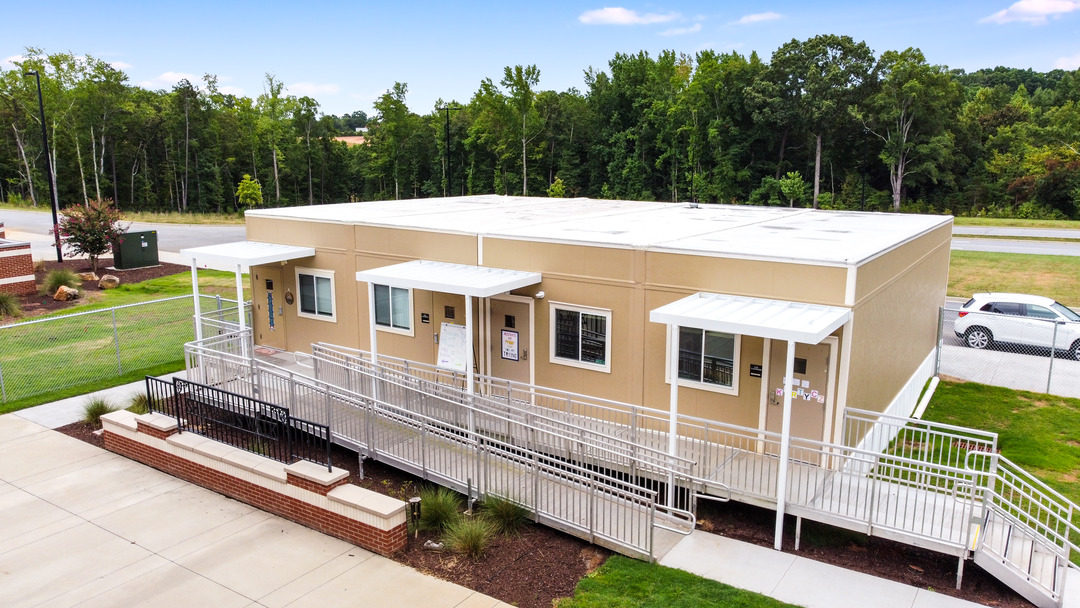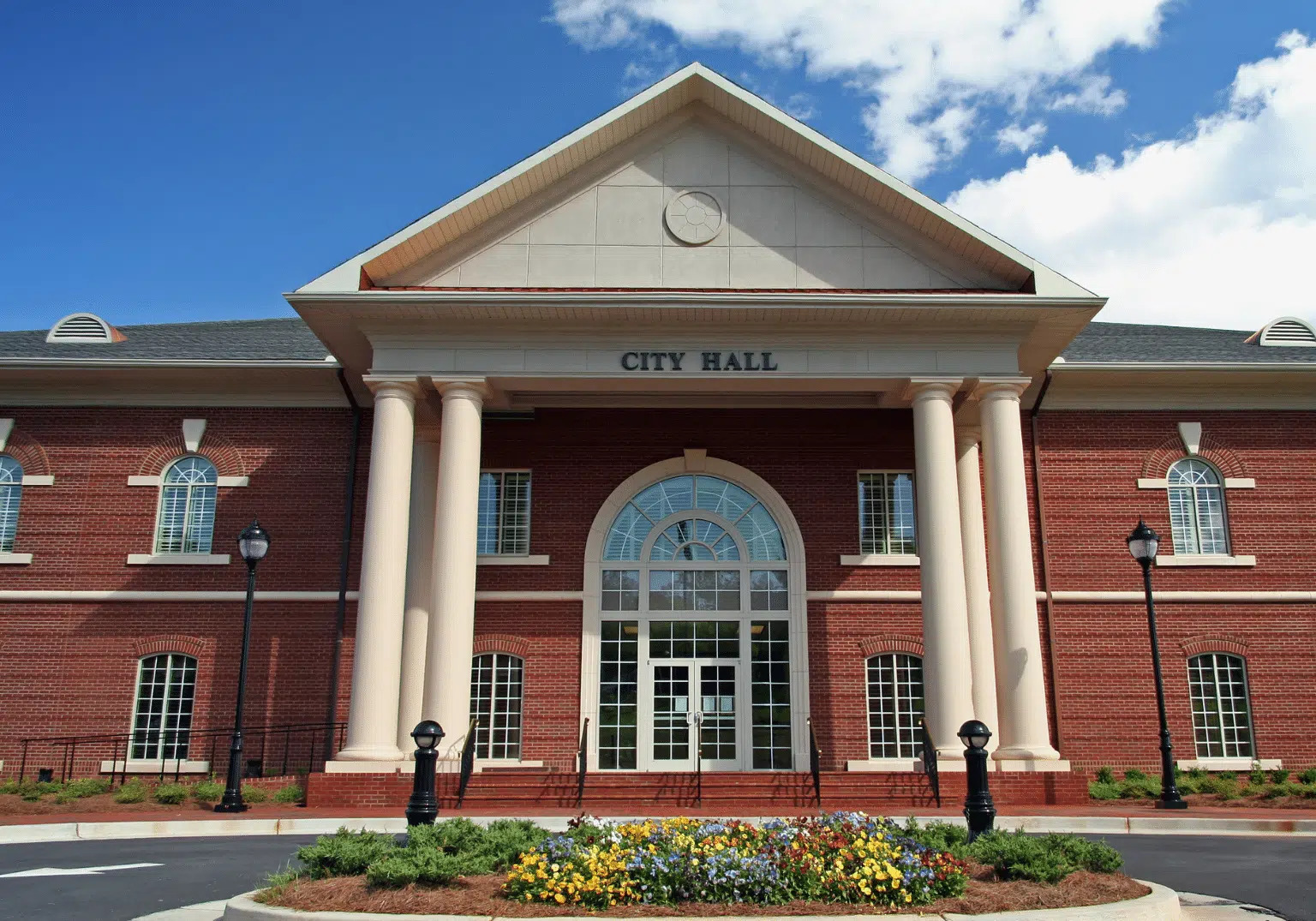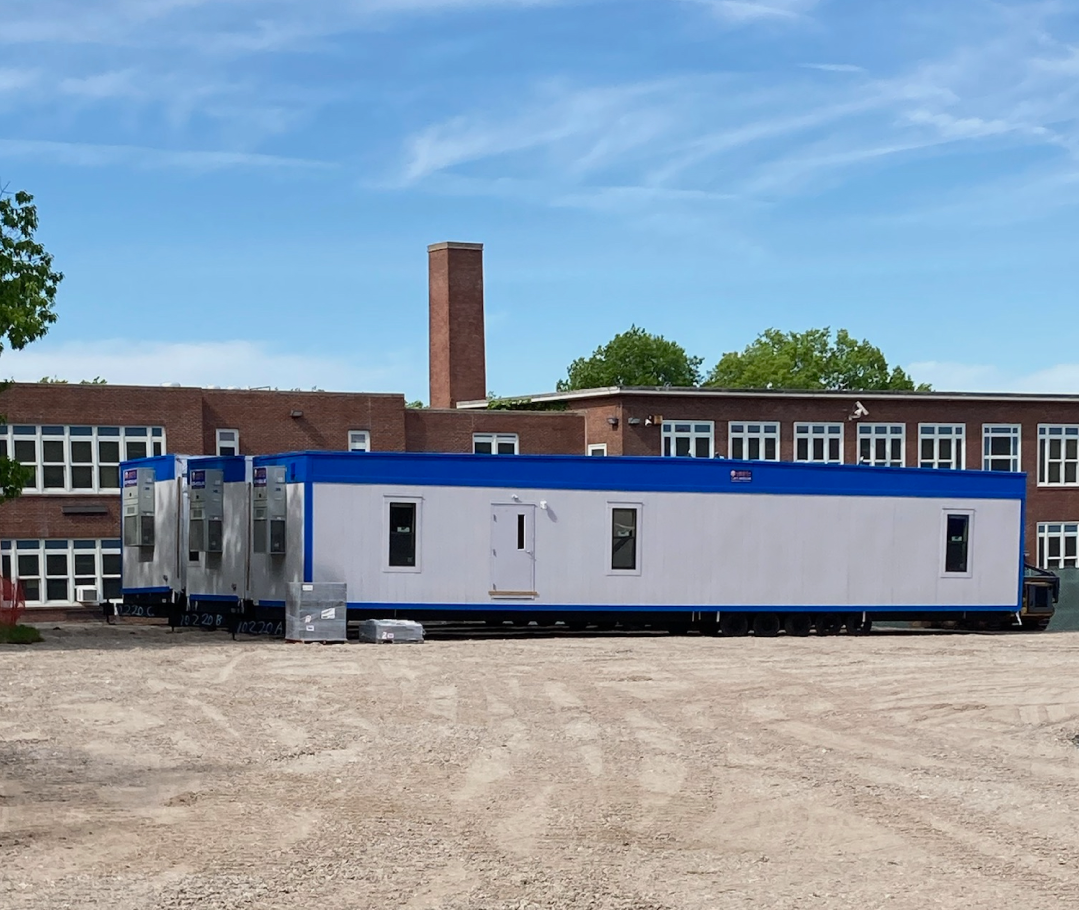Modular at the Manufacturer: How is Modular Construction Done?
The inventive building projects and innovative solutions that modular construction provides customers all begins at the manufacturer, where a unique process is undergone to construct buildings from start to finish. Today’s modern modular fabrication process means buildings are brought to job sites almost ready for occupancy. Production of modules at controlled facilities means every stage of the construction process is fine-tuned and optimized for quality, cost-effectiveness, and speed.
Modular assemblies in manufacturing are quickly becoming the go-to choice for contractors and developers looking for eco-friendly, fast, and reliable alternatives to traditional construction. So, what is modular manufacturing? How can the modular manufacturing process help your team meet specific project demands without compromising quality, budget, or time?
We’ll walk you through everything you need to know. Just read on!
Are you looking for flexible and reliable solutions for your construction project? Whether you’re hunting for simple modular designs or intricate custom installations, Mobile Modular has the solutions you need to get the job done. Call us at 800-819-1084 today to get started.
What is Modular Manufacturing?
While you may have seen the results of modular manufacturing, you may not be aware of the process. Put quite simply, modular construction takes the often chaotic traditional construction process and incorporates more effective, and modern procedures. Instead of piecing everything together on-site, a majority of the actual manufacturing process happens in a controlled warehouse environment.
Workers will build modules, or individual sections of buildings, that will travel to the project site in relatively built-out sections. On-site workers will piece together the modules to meet exact project requirements and specifications. Modular manufacturing is fast and cost-effective, and it often provides higher-quality results than traditional construction projects. So, what does the process look like in the warehouse?
The Modular Fabrication Process
Throughout the modular fabrication process, workers operate in optimal conditions to provide the highest-quality construction that meets your exact project specifications. At Mobile Modular, we construct all of our buildings indoors at our manufacturing facilities. This gives us control over every step of the process and a high level of quality control for everything we build.
We use assembly-line methods to construct each module. It all starts with the steel frame. Workers weld steel components to create a rugged and durable foundation for each module. After we finish the steel frame, the next step is to assemble the floor.
Our experienced carpenters will custom-fit the frame by assembling and fastening floor joists to the steel foundation. From here, it’s a matter of attaching the floor decking to the joists to finish its assembly. While carpenters finish the floor, in another area of the facility, workers are constructing prefabricated walls with exact precision. This will ensure that each module is consistent with project plans. Walls will then attach securely to the built-out flooring and frame.
Next, workers will install interior finishing elements. This might include:
- Windows
- Insulation
- Wiring
- Plumbing
- Other custom components
As the interior of the module is approaching completion, our team will fit and install the prefabricated roof. At this time, we’ll fit the final components like ductwork, HVAC units, doors, and weatherproof finishes. After these final additions, the unit is then ready for staging and transportation to the project site.
At every step of the modular manufacturing process, quality control personnel will observe construction to ensure everything meets project requirements and overall company standards.
After Manufacturing
Once on the job site, workers will either use a crane to move modules onto the foundation or roll them in using different vehicles. From there, they will bolt the sections onto the foundation and seal everything to ensure optimal weatherproofing. Next, the on-site construction team will connect sections, install utility hookups, and finish the exterior siding and roofing components.
The final construction process includes:
- Cladding
- Final caulking and sealing
- Additions like stairs or elevators
- Interior finishes like paint, trim, countertops, and more
Additionally, any appliances that were not part of the initial manufacturing process will need to be installed.
3 Benefits of Modular Manufacturing and Construction
As the construction industry continues to develop, the benefits of modular manufacturing become more clear. Using the modular manufacturing process, contractors and developers can save time and resources — not to mention reducing the overall environmental impact of construction. Most importantly, though, each customer receives convenient solutions that match their needs perfectly.
The popularity of modular assemblies in manufacturing is growing fast for these reasons and more. This leaves more traditional methods behind by creating innovative solutions to meet the evolving demands of job sites, designers, and eco-conscious developers. Let’s explore some of the incredible benefits of modular manufacturing.
1. Save Time and Money with Modular Construction
The modular construction industry is expected to catapult to a whopping $108 billion market size in 2025. Driving that growth is modular’s efficiency, cost-effectiveness, and flexibility. During manufacturing, cutting costs and improving efficiency is the key to keeping the project moving on time and on budget.
Saving time saves money. Additionally, modular manufacturing reduces the time needed for project schedules — lowering costs further as a result. Modular manufacturing does this by allowing for site work and construction to occur simultaneously, maximizing production and installation efficiency.
This reduction in scheduling time also allows contractors and designers to offer shorter timelines for projects. For customers in need of a solution that can meet their strict deadlines, modular is the answer.
2. The Environmental Impact of Modular Manufacturing
The environmental impact of traditional construction is staggering. From burning massive amounts of fossil fuels for transportation to running high-powered machinery on site, the construction sector is one of the world’s top polluters.
Modular manufacturing is a sustainable construction technique that reduces its footprint through various channels:
- Simplifying the delivery process — The delivery of a modular building requires only one trip from the manufacturer to the site.
- Reducing the amount of wasted materials — With modular, you won’t need to source materials from different locations and bring them to the site. Modular facilities can purchase in bulk for both current and future projects, further reducing waste.
- Reusing buildings — Modular limits the need for new construction for each new project. This is especially true for temporary modular projects like disaster relief or on-site construction storage and offices.
- Saving materials — Teams can keep track of scrap materials for use in future projects during the modular fabrication process instead of extra materials ending up in a garbage bin on site.
3. Flexible Options that are Customized for Your Project
Even the best-laid plans can unravel when it comes time to get things done. With a business of any kind, the customer’s needs are always the highest priority. Delivering convenient solutions to complex needs is how the modular industry sets itself apart from traditional construction.
With the ability to customize installations, contractors can develop modular projects to the customer’s exact specifications. The actual manufacturing process is fast, too. This means shorter time frames and some serious savings on labor. Additionally, workers operate within a controlled environment with all the materials necessary on hand. This cuts the probability of delays and setbacks. The stress associated with traditional construction is less of a concern with modular manufacturing.
Modular buildings can help on the job site, as well. Are you looking for more storage? Well, it might be time to rent more construction containers. Adding to your management team and need extra offices? Well, not only do turnkey construction site container office solutions solve your space issues, but the modular building delivery process is painless and easy.
Working with an experienced name in modular construction, like the team at Mobile Modular, means you’ve got access to extra container solutions when you need them most.
Modular Manufacturing You Can Trust
No matter what your project demands, modular manufacturing can offer some key advantages in overall quality, consistency, and speed.
What is modular manufacturing? Hopefully, you now have a good idea of what modular construction can provide your team and why this modernized process has become a viable alternative to traditional construction methods. Modular can help you make the most out of your project’s budget and timetable without sacrificing design elements — all while offering a higher level of quality control.
If you’re thinking of going modular for your next project, Mobile Modular is here to help. Our team of construction experts can assist with every stage of the manufacturing process and even help with logistics and transport. We’ve worked with many different teams to create one-of-a-kind projects in some of the world’s most remote locations. Regardless of what you’re building, contact us today to get help with your next modular project.





